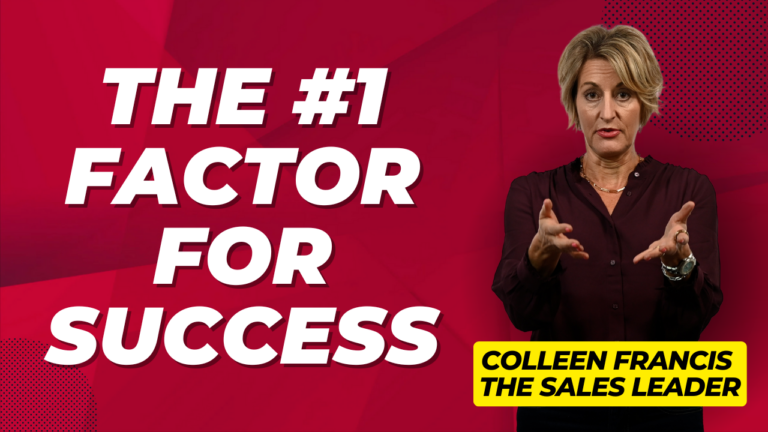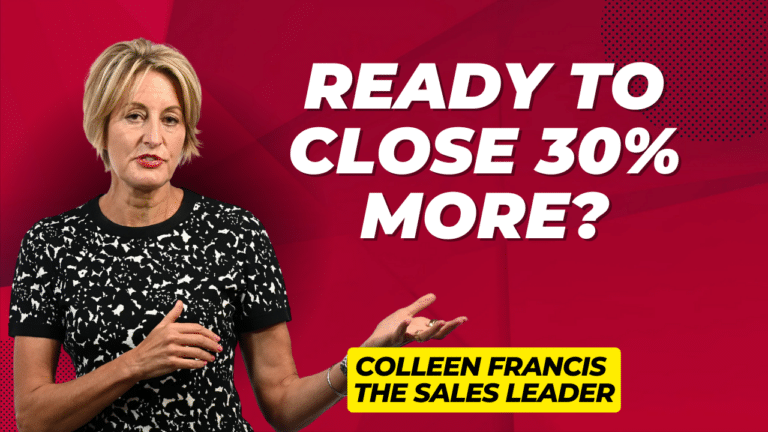You’re interviewing a candidate for your sales team and things are going swimmingly. The person has a great personality and an impressive track record with long sales cycles. However, your company requires quick turnarounds.
What could go wrong?
In this situation, everything. Far too many sales executives assume the candidate will adapt quickly to a different sales cycle – only to end up with a poor or average performer.
Why does this happen?
Simple. It takes very different skills to effectively manage short versus long cycles (not to mention experience) to be successful.
So why make a bad decision in the first place?
Because the company or sales executive haven’t fully outlined the job requirements. This, in turn, makes interviewers susceptible to feelings about the candidate rather than facts.
Before you start interviewing, carefully document not only the required skills but also the personality traits that will ensure successful hires. I touched on this in the first article of this series, Expanding Your Sales Force: The Pre-steps. Now let’s go more in depth with five ways to identify the sellers you need.
1. Map the job requirements
First, do you want sellers who are quick closers? Or those who can think strategically through month- or year-long cycles?
Next, look at the most successful sellers on your team. Determine how many calls they make on a daily basis. Or how often they’re able to sell to existing clients. Do you need strong cold callers because leads aren’t being nurtured through a marketing campaign? Or do you want sellers who excel at building relationships with existing clients?
In addition, consider what you’re selling. Do you need sales reps with strong technical skills to demo software? People with strong science skills to sell to hospitals?
And don’t forget to look at your clients. Are they:
- Small business owners?
- Low-level managers?
- The highest level executives in the largest corporations in the country?
Depending on your client base, you may need to hire:
- Someone with strong executive presence who’s comfortable meeting with C levels of Fortune 500 companies.
- Someone familiar with the sales cycles of larger businesses.
Or
- Someone who works well with nurturing small business or micro business owners.
There is no right or wrong, but you must align the behaviors with the sales cycles of your business.
2. Seek enthusiasm
You can’t train a positive attitude. Sure, an excellent sales rep can learn the product or bump up their technical skills. But if they’re not excited and driven to succeed, then it will negatively affect their performance as well as drain the rest of your team.
3. Determine personal responsibility
There’s no debating that all sellers experience failure in the sales process. The only question is does your candidate own up to that failure or play the blame game?
During your interviews ask questions such as:
- Tell me about a time when you lost a piece of business?
- When a customer was upset with you in the past, what did you do?
The candidate’s answers will be telling. Be honest, sellers must take full ownership of the conversion process from prospect to client. If they start to blame shipping, accounting, a team member, or their manager for any failed sale or disgruntled customer, it’s an immediate red flag.
For example, I just listened to a sales leader client put the blame on a company policy that was rolled out five years ago ̶ and replaced three years ago ‒ for his current team’s inability to hit their annual targets. This manager is now on probation and his prognosis isn’t good. Don’t hire candidates who won’t take personal responsibility.
4. Look for life-long learners
I love to ask these questions in a sales interview:
- Tell me about the last book you read?
- The last sales training seminar you attended?
Ideally, they have a book in mind or a sales training seminar or podcast they’ve listened to.
Then I ask them:
- What did you learn from that?
- What did you implement?
The sellers who don’t get hired are those that say:
- “Well, it was a nice refresher. I knew everything already.”
- “There was really nothing I could apply to my business.”
- “I haven’t read anything in a while.”
These answers indicate people whose minds aren’t engaged and who are stuck in their ways. It’ll be an uphill battle to move them to your method of selling or managing clients. Successful sellers are lifelong learners.
As an aside, I always notice that during workshops and sales meetings the sellers who don’t need to be in the class sit up front and ask questions, while the sellers who really need the help are late for class, sit in back and seem disengaged.
5. Test for a strong memory
I can’t stand it when sellers forget who they spoke to last week or which clients are in the pipeline. A strong memory is vital. It doesn’t have to be photographic, but sales reps should remember the names of their prospects and clients ̶ the people who are going to generate revenue for them!
I always end my interviews by asking the candidate to recap the interview for me. This does two things.:
- It tests their memory.
- It shows whether or not they’ve paid attention. If the candidate can’t even focus on the interview and remember what you talked about, imagine how bad that would look in front of a customer!
A client recently fired a seller who had been employed for only four weeks. During the interview process he appeared scattered and absent but was hired reluctantly because the manager was impressed with his “rolodex” in the market. After the second time this seller left his laptop at home on a business trip the president said to me, “If he can’t remember simple business tools, how will he remember our complex products and services?”
So the next time your company is ready to expand, be sure to review these five steps to help identify the best skills and behaviors for the job. Once a full outline’s in place, you’ll be on your way to better hires ̶ and a stronger sales team!




